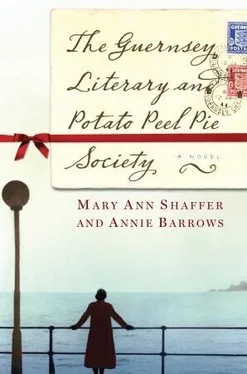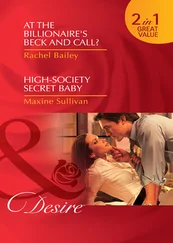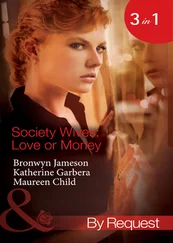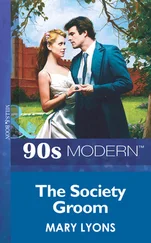He’s got that way of believing his opinion is the truth, but he’s not disagreeable about it. He’s too sure he’s right to bother being disagreeable.
Once we were seated—in our own velvet-draped alcove—and all the waiters and stewards and maîtres d’hôtel were finished fluttering about us, I asked him point-blank why he had sent me those scads of flowers without including any note.
He laughed. “To make you interested. If I had written you directly, asking you to meet me, how would you have replied?” I admitted I would have declined. He raised one pointed eyebrow at me. Was it his fault if he could outwit me so easily?
I was awfully insulted to be so transparent, but he just laughed at me again. And then he began to talk about the war and Victorian literature—he knows I wrote a biography of Anne Brontë—and New York and rationing, and before I knew it, I was basking in his attention, utterly charmed.
Do you remember that afternoon in Leeds when we speculated on the possible reasons why Markham V. Reynolds, Junior, was obliged to remain a man of mystery? It’s very disappointing, but we were completely wrong. He’s not married. He’s certainly not bashful. He doesn’t have a disfiguring scar that causes him to shun daylight. He doesn’t seem to be a werewolf (no fur on his knuckles, anyway). And he’s not a Nazi on the lam (he’d have an accent).
Now that I think about it, maybe he is a werewolf. I can picture him lunging over the moors in hot pursuit of his prey, and I’m certain that he wouldn’t think twice about eating an innocent bystander. I’ll watch him closely at the next full moon. He’s asked me to go dancing tomorrow—perhaps I should wear a high collar. Oh, that’s vampires, isn’t it?
I think I am a little giddy.
Love,
Juliet
From Lady Bella Taunton to Amelia
12th February, 1946
Dear Mrs. Maugery,
Juliet Ashton’s letter is at hand, and I am amazed at its contents. Am I to understand she wishes me to provide a character reference for her? Well, so be it! I cannot impugn her character—only her common sense. She hasn’t any.
War, as you know, makes strange bedfellows, and Juliet and I were thrown together from the very first when we were Fire Wardens during the Blitz. Fire Wardens spent their nights on various London roof-tops, watching out for incendiary bombs that might fall. When they did, we would rush forth with stirrup pump and buckets of sand to stifle any small blaze before it could spread. Juliet and I were paired off to work together. We did not chat, as less conscientious Wardens would have done. I insisted on total vigilance at all times. Even so, I learned a few details of her life prior to the war.
Her father was a respectable farmer in Suffolk. Her mother, I surmise, was a typical farmer’s wife, milking cows and plucking chickens, when not otherwise engaged in owning a bookshop in Bury St. Edmunds. Juliet’s parents were both killed in a motor accident when she was twelve and she went to live with her greatuncle, a renowned Classicist, in St. John’s Wood. There she disrupted his studies and household by running away—twice.
In despair, he sent her to a select boarding school. When she left school, she shunned a higher education, came to London, and shared a studio with her friend Sophie Stark. She worked by day in bookshops. By night, she wrote a book about one of those wretched Brontë girls—I forget which one. I believe the book was published by Sophie’s brother’s firm, Stephens & Stark.
Though it’s biologically impossible, I can only assume that some form of nepotism was responsible for the book’s publication.
In any event, she began to publish feature articles for various magazines and newspapers. Her light, frivolous turn of mind gained her a large following among the less intellectually inclined readers—of whom, I fear, there are many. She spent the very last of her inheritance on a flat in Chelsea. Chelsea, home of artists, models, libertines, and Socialists—completely irresponsible people all, just as Juliet proved herself to be as a Fire Warden.
I come now to the specifics of our association. Juliet and I were two of several Wardens assigned to the roof of the Inner Temple Hall of the Inns of Court. Let me say first that, for a Warden, quick action and a clear head were imperative—one had to be aware of everything going on around one. Everything .
One night in May 1941, a high-explosive bomb was dropped through the roof of the Inner Temple Hall Library. The Library roof was some distance away from Juliet’s post, but she was so aghast by the destruction of her precious books that she sprinted toward the flames—as if she could single-handedly deliver the Library from its fate! Of course, her delusions created nothing but further damage, for the firemen had to waste valuable minutes in rescuing her.
I believe Juliet suffered some minor burns in the debacle, but fifty thousand books were blown to Kingdom Come. Juliet’s name was stricken from the lists of the Fire Wardens, and rightly so. I discovered she then volunteered her services to the Auxiliary Fire Services. On the morning after a bombing raid, the AFS would be on hand to offer tea and comfort to the rescue squads. The AFS also provided assistance to the survivors: reuniting families, securing temporary housing, clothing, food, funds. I believe Juliet to have been adequate to that daytime task—causing no catastrophe among the teacups.
She was free to occupy her nights however she chose. Doubtless it included the writing of more light journalism, for the Spectator engaged her to write a weekly column on the state of the nation in war-time—under the name of Izzy Bickerstaff.
I read one of her columns and canceled my subscription. She attacked the good taste of our dear (though dead) Queen, Victoria. Doubtless you know of the huge memorial Victoria had built for her beloved consort, Prince Albert. It is the jewel in the crown of Kensington Gardens—a monument to the Queen’s refined taste as well as to the Departed. Juliet applauded the Ministry of Food for having ordered peas to be planted in the grounds surrounding that memorial—writing that no better scarecrow than Prince Albert existed in all of England.
While I question her taste, her judgment, her misplaced priorities, and her inappropriate sense of humor, she does indeed have one fine quality—she is honest. If she says she will honor the good name of your literary society, she will do so. I can say no more.
Sincerely yours,
Bella Taunton
From the Reverend Simon Simpless to Amelia
13th February, 1946
Dear Mrs. Maugery,
Yes, you may trust Juliet. I am unequivocal on this point. Her parents were my good friends as well as my parishioners at St. Hilda’s. Indeed, I was a guest at their home on the night she was born.
Juliet was a stubborn but, withal, a sweet, considerate, joyous child—with an unusual bent toward integrity for one so young. I will tell you of one incident when she was ten years old. Juliet, while singing the fourth stanza of “His Eye Is on the Sparrow,” slammed her hymnal shut and refused to sing another note. She told our choir director the lyrics cast a slur on God’s character. We should not be singing it. He (the choir director, not God) didn’t know what to do, so he escorted Juliet to my office for me to reason with her.
I did not fare very well. Juliet said, “Well, he shouldn’t have written, ‘His eye is on the sparrow’—what good was that? Did He stop the bird from falling down dead? Did He just say, ‘Oops’? It makes God sound like He’s off bird-watching, when real people need Him.”
I felt compelled to agree with Juliet on this matter—why had I never thought upon it before? The choir did not sing and has not since sung “His Eye Is on the Sparrow.”
Читать дальше












